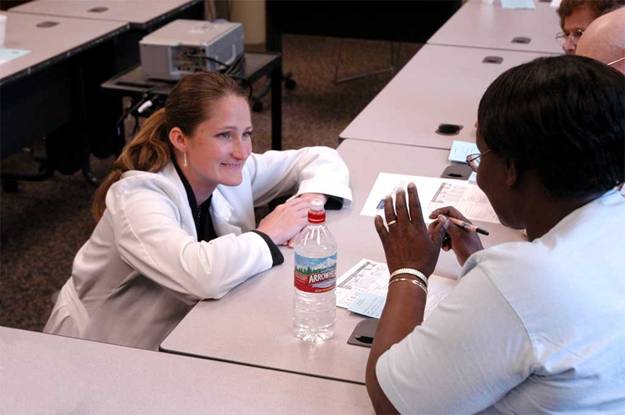Build a ProgramIntegrating Self Management in Primary Care: Patient Supports
Characteristics of patient support for self management include:
Individualized Assessment of Patient's Self-Management Educational Needs
Individualized assessment is the process of determining patient-specific
educational needs, barriers, skills, preferences, learning styles and resources for self management.
Self Management Education
Self management education is an interactive, collaborative and ongoing process of providing information and instruction to support people’s ability to successfully manage their health conditions, their daily life activities, and the emotional changes that often accompany having a chronic condition.
Collaborative Goal Setting
.
Collaborative goal setting is a process involving providers and patients working together on identifying something the patient wants to accomplish and agreeing on a plan for getting started. Well formulated goals are “SMART” (Specific, Measurable, Action-oriented, Realistic, and Time-limited).
Problem Solving Skills
These are skills patients can learn and use to overcome barriers to healthy self management. The process involves a series of steps: identifying the problem or barrier, identifying possible solutions, selecting and implementing the one that seems best, evaluating the results, and planning next steps accordingly.
Emotional Health
Mental or emotional health generally refers to an individual's thoughts, feelings and moods. Good mental health is defined in the Surgeon General's report as "the successful performance of mental function, resulting in productive activities, fulfilling relationships with other people, and the ability to adapt to change and cope with adversity." Difficult emotions, on the other hand, run the gamut from stress and anxiety to depression and psychopathology and can be a barrier to healthy self management. 
Patient Involvement in Decision Making
Patient involvement means that patients--and their families or others who provide
support--are involved in planning and making decisions about the patient’s health care. In this approach, patients are viewed
as key members of the health care team and have access to useful information to promote health and manage disease. Patient involvement implies shared decision making about care and ensuring that the patient’s values guide all clinical decisions.
Patient Social Support
The assistance or help that is accessible to a patient through their social ties to others including family, friends, neighbors and peers. Social support can take many forms such as emotional support, tangible assistance, information or helpful feedback.
Link to Community Resources
Community resources include programs, services, and environmental features that support self- management behaviors. Programs and services that support self management may be available through community agencies, schools, faith-based organizations or places of work. Examples of environmental supports include safe, accessible and affordable places for physical activity and for buying healthy foods.
Assessing and Evaluating the System of Care
The Diabetes Initiative developed an instrument that helps primary health care settings assess their current levels of organizational and patient care supports for self management and identify areas for quality improvement. This tool, the Assessment of Primary Care Resources and Supports for Chronic Disease Self-Management (PCRS), is designed for use in a variety of primary care settings and across different chronic illnesses.
Click here to return to main Integrating Self Management in Primary Care page
|


